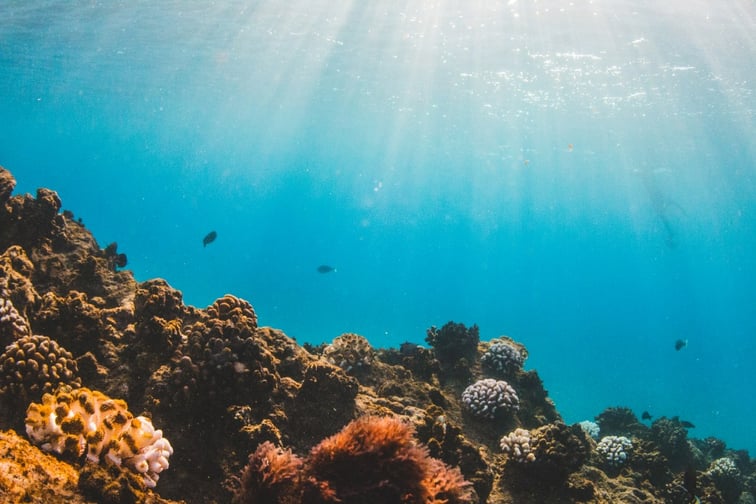

Global broker WTW and The Nature Conservancy (TNC) have announced the United States’ first-ever coral reef insurance policy. The policy will provide coverage for rapid coral reef repair and restoration in Hawaii following damage from hurricanes or tropical storms.
In 2019, TNC and its partners implemented the world’s first reef insurance policy to protect against hurricane damage in Quintana Roo, Mexico. A payout from that policy was used to repair damage from 2020’s Hurricane Delta. Since then, the Mesoamerican Reef (MAR) Fund and WTW’s Climate and Resilience Hub have partnered to design parametric insurance programs across the Mesoamerican Reef, from southern Mexico through Belize, Guatemala and Honduras. Parametric insurance offers specified payouts based on the intensity of defined trigger events.
Working with WTW, TNC chose Munich Re to provide the new policy. It is triggered at wind speeds of 50 knots (57mph) if sufficiently close to the reef, and provides payouts of up to $2 million within days to allow rapid repair and restoration and to facilitate emergency care. The Hawaii policy covered the latter part of this year’s hurricane season and will be in place throughout the entire 2023 season.
“The Nature Conservancy is thrilled to pilot the first coral reef insurance policy in the United States,” said Ulalia Woodside Lee, executive director of TNC for Hawaii and Palmyra. “In Hawaii, we are rooted in the environment; the health of our coastlines and communities is directly tied to the health of the coral reefs surrounding our islands. By investing in nature, our insurance and finance partners are demonstrating its value as a critical natural, cultural and economic resource.”
“Helping to design the first pre-arranged, trigger-based insurance policy for coral reefs in the US has been very exciting,” said Simon Young, senior director of WTW’s Climate and Resilience Hub. “With climate change-related natural hazards increasing in scale and frequency, this type of groundbreaking solution enables the rapid deployment of resources to help repair critical ecosystems and restore services following a major event like a hurricane.”
Coral reefs provide coastal flood protection to thousands of people and properties and contribute more than $1.2 billion to Hawaii’s economy through tourism, WTW said. Hawaii’s reefs are also home to the endangered green sea turtle and Hawaii’s state fish, the Humuhumunukunukuapua’a.
Tropical storms and hurricanes can pose a severe short-term threat to coral reefs. Severe hurricanes can cause a loss of live coral cover of 50% or more, and the loss of only one meter of reef height can double the cost of damage to coastal communities, WTW said. Healthy, intact reefs, by contrast, can reduce up to 97% of wave energy, making them the islands’ first line of defense during storms.
“Managing natural resources is a costly endeavor, and more investment is always needed,” said Brian Nielson, administrator of the Division of Aquatic Resources (DAR), Hawaii Division of Land and Natural Resources. “TNC has been an excellent partner in restoring the reefs and fisheries of Hawaii, and we are grateful for their leadership in securing this insurance. It is a step forward in coral reef conservation and will provide vital funding to repair reefs when it is urgently needed.”
When a storm triggers a payout under the policy, TNC will activate an advisory committee in coordination with DAR and other local partners to guide the distribution of funds for reef repair and restoration. TNC, DAR and other partners will convene early next year to develop a response plan to guide first responders and reef managers to rapidly and effectively address storm impacts, WTW said.
“Coral reefs are vital to our people, culture, lifestyle and economy; reef insurance will help us care for them,” said Ekolu Lindsey of local community partner Kīpuka Olowalu. “In Hawaiian culture, the coral polyp is the origin of all life. We have a kuleana (responsibility) to maintain the integrity and rejuvenation of our coral reef systems. We look forward to working with TNC and other partners to develop response plans to mālama (care for) our ko’a (corals) and to ensure that reef insurance funds are applied fairly.”
